I don't know what I'd do if it weren't for Kimi Information Center. Not only did they find me my apartment, they made it possible for me to quit my Nova job and work for them. And, of course, they organize seasonal field trips like the previously documented hanami party. And now this, my first Japanese hanabi experience.
Honestly, if it weren't for them, I'd probably have left the country already.
("Hana" means flower. "Mi" is the stem of the verb miru, to see, so "hanami" means flower-viewing, specifically cherry blossoms. "Hi," pronounced "bi" when it apears at the end of words, means day, sun or fire, thus "hanabi" means "flower fire," known in English as fireworks. Never let anyone tell you Japanese isn't a versatile language.)
Despite similarities to the American/Canadian equivalents in July, fireworks in Japan are on a whole other level. For one thing, it's not a special day, it's a whole season. From the end of July all the way through August, townships all over Japan organize festive events showcasing the best fireworks this side of China. People dress up for this—expect to see men, women and children dressed up in yukata, summer kimonos, and clomping around in those nifty wooden sandals.
This is where Japan's overwhelming crowdedness really becomes apparent. (For the uninitiated: a population half the size of the United States' living on an island smaller than California.) The viewing area looked to be something like ten football fields long, with what must have been tens of thousands of people. But that's not the crazy part. The crazy part is, I've talked to at least three people who went to see fireworks on the same night as me, and none of them were at this festival.
The vibe of a Japanese-style fireworks festival is remarkably different from what I'm used to back home. For most of us, fireworks are something you drive to, sit and watch for an hour, and go home. Hanabi are more of an all-night affair in Japan. Here you'll need that hour just to get to your seat (you did reserve a seat, right?). The fireworks run for two and a half hours, so sit back with your family and friends, have some beer, and enjoy the show. When it's over, the ten thousand people here all need to stagger to the same train station, so no point in rushing.
The Japanese spirit of community never fails to amaze me. Even spread out over an entire month, and not even tied to a specific independence celebration, the hanabi bring out the entire population—dressed up, well behaved and delighted to be outside.
I admit it, I'm jealous.
Enough talking, let's see some fireworks!

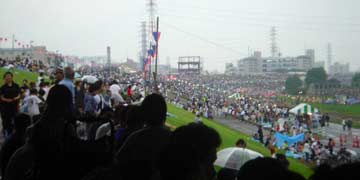
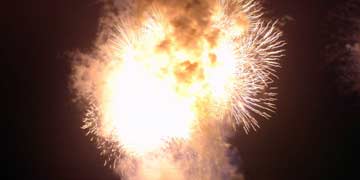
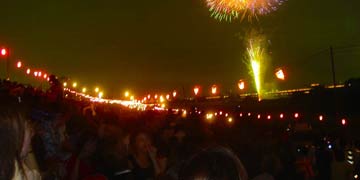
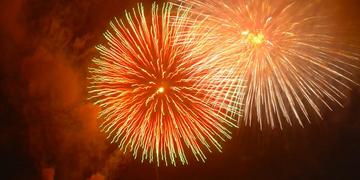
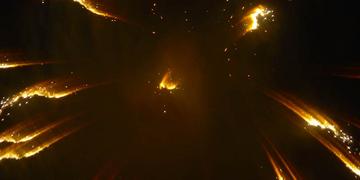
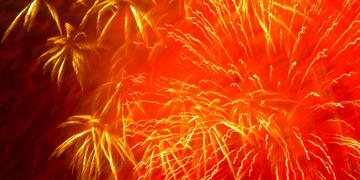

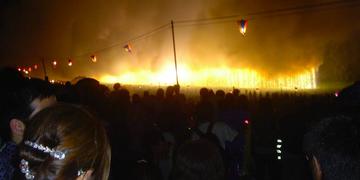
I had just listened to an NPR report on Hanabi when I thought I would check out your blog. I must say, that your description is much better observed, more filed with nuance and cultural understanding, than that of the professional reporter. I particularly like the movement from the versatility of the language to the community spirit of its speakers.
BTW, I like the new site design even better.
Well, done.
-- Ben